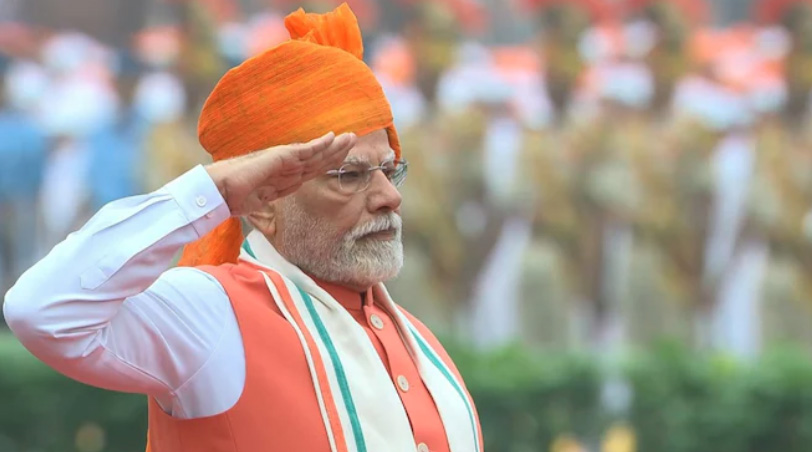New Delhi: Prime Minister Shri Narendra Modi’s Independence Day address in 2025 was a wide-ranging speech that touched upon India’s progress, future goals, and a number of key policy announcements. His praise of the Rashtriya Swayamsevak Sangh (RSS) was a notable part of this address, particularly as the organization approaches its centenary.
Praise for the RSS’s Role: The Prime Minister specifically lauded the RSS for its “100 years of dedication towards the country.” He described it as the “biggest NGO in the world,” highlighting its contributions to nation-building through service, discipline, and dedication.
Historical Context: The RSS was founded by Keshav Baliram Hedgewar in 1925 in Nagpur. The organization is now celebrating its centenary year, which officially began in late 2024 and will continue into 2025. It presents itself as a cultural organization that promotes a Hindu nationalist agenda under the banner of “Hindutva.”
Organizational Reach: The RSS operates through a network of local branches known as shakhas, which are its primary units for training and ideological mobilization. The organization claims to have millions of volunteers across India and abroad. The Sangh Parivar, an umbrella of affiliated organizations, includes the ruling Bharatiya Janata Party (BJP), the Vishwa Hindu Parishad (VHP), and the Akhil Bharatiya Vidyarthi Parishad (ABVP).
Centenary Celebrations: To mark its 100th anniversary, the RSS has announced plans for widespread public outreach, including Hindu conferences and a goal to increase its shakhas to over one lakh nationwide. The official centenary celebrations will begin with a lecture series by RSS chief Mohan Bhagwat in major cities.
Ideological Influence: The RSS’s ideology is rooted in Integral Humanism, a philosophy developed by Deendayal Upadhyaya, which emphasizes the individual’s development within the framework of society and the nation. Critics, however, have raised concerns about the RSS’s promotion of Hindu nationalism, accusing it of a divisive agenda and involvement in communal tensions. The organization has been banned several times in the past, including following the assassination of Mahatma Gandhi, though subsequent investigations did not link the leadership to the plot.


